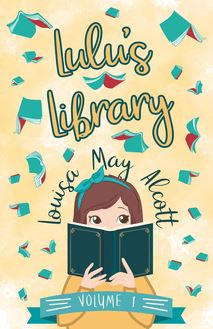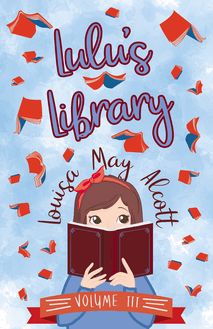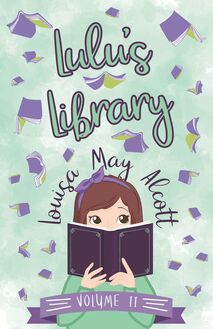-
 Univers
Univers
-
 Ebooks
Ebooks
-
 Livres audio
Livres audio
-
 Presse
Presse
-
 Podcasts
Podcasts
-
 BD
BD
-
 Documents
Documents
-
- Cours
- Révisions
- Ressources pédagogiques
- Sciences de l’éducation
- Manuels scolaires
- Langues
- Travaux de classe
- Annales de BEP
- Etudes supérieures
- Maternelle et primaire
- Fiches de lecture
- Orientation scolaire
- Méthodologie
- Corrigés de devoir
- Annales d’examens et concours
- Annales du bac
- Annales du brevet
- Rapports de stage
La lecture à portée de main
Vous pourrez modifier la taille du texte de cet ouvrage
Découvre YouScribe en t'inscrivant gratuitement
Je m'inscrisDécouvre YouScribe en t'inscrivant gratuitement
Je m'inscrisEn savoir plus
Vous pourrez modifier la taille du texte de cet ouvrage
En savoir plus

Description
Sujets
Informations
| Publié par | Read Books Ltd. |
| Date de parution | 11 octobre 2019 |
| Nombre de lectures | 0 |
| EAN13 | 9781528788434 |
| Langue | English |
| Poids de l'ouvrage | 1 Mo |
Informations légales : prix de location à la page 0,0500€. Cette information est donnée uniquement à titre indicatif conformément à la législation en vigueur.
Extrait
LULU'S LIBRARY
VOLUME III
By
LOUISA MAY ALCOTT
First published in 1889
This edition published by Read Books Ltd. Copyright © 2019 Read Books Ltd. This book is copyright and may not be
reproduced or copied in any way without
the express permission of the publisher in writing
British Library Cataloguing-in-Publication Data
A catalogue record for this book is available from the British Library
Contents
Louisa M ay Alcott
RECOLLECTIONS OF MY C HILDHOOD.
A CHRISTMAS TURKEY, AND HOW IT CAME.
THE SILV ER PARTY.
THE BL IND LARK.
MUSIC AND MACARONI.
THE LITTLE R ED PURSE.
SOPHIE' S SECRET.
DOLLY'S BEDSTEAD.
TRUDEL 'S SIEGE.
Louisa May Alcott
Louisa May Alcott was an American Novelist, best known for the classic Little Women (1868) and its sequels Little Men and Jo’s Boys. Alcott was born on 29 November, 1832 in Germantown, Pennsylvania, USA, and was raised by her transcendentalist parents. The family, despite their connections with the American intellectual elite, suffered severe financial hardship and Alcott frequently helped to support the household. In 1840, after several financial setbacks, most notably following the experimental school set up by Louisa May’s father, the family moved to a cottage along the Sudbury River in Massachusetts. In 1843, the family moved again to the Utopian Fruitlands Community , an agrarian commune, dedicated to natural living. They finally settled in a house they named Hillside in 1845. As a result of this peripatetic childhood, Alcott’s schooling was mainly received from her father, who was an incredibly strict disciplinarian, high thinker and advocate of plain living. This instilled a determination and strong work ethic in Alcott, who worked as a teacher, governess, seamstress and writer in her early years. As an adult, Alcott was a strong abolitionist and a feminist advocate, becoming the first woman to register to vote in Concord, in a school board election. During the civil war, Alcott worked as a nurse in the Union Hospital at Georgetown, D.C. She collected all her letters, often dryly humorous, in book entitled Hospital Sketches (1863); a work which brought Alcott critical acclaim. Following on from this success, Alcott wrote several novels under the pen name A. L. Barnard, most notably A Long Fatal Love Chase (1866) and A Modern Mephistopheles (1875). However, Little Women and its sequels were Alcott’s major successes; the first book dealt with the childhood of Meg, Jo, Beth and Amy; characters strongly based on Alcott’s childhood accompanied by her own three sisters. The sequel, Good Wives (1869) dealt with their progression into adulthood, whilst Little Men (1871) detailed Jo’s life at the school she founded alongside her husband. Jo’s Boys (1886) completed the ‘Family Saga’. The Character Jo was loosely based on Alcott’s own life, however unlike the heroine, Alcott never married, commenting that ‘I am more than half-persuaded that I am a man's soul put by some freak of nature into a woman's body ... because I have fallen in love with so many pretty girls and never once the least bit with any man.’ Alcott was firmly part of the Gilded Age , along with authors such as Elizabeth Stoddard and Rebecca Harding Davis, she addressed women’s issues in a modern and candid manner. Alcott continued to write until her death on 6 March, 1888. The cause of death is uncertain; she suffered chronic health problems, including vertigo and typhoid, the latter of which was treated with mercury. However recent analysis of her illnesses has suggested an autoimmune disease such as Lupus. She is buried in Sleepy Hollow Cemetery, Concord, Massachusetts, on a hillside known as Author ’s Ridge.
Louis a May Alcott
CHAPTER I.
RECOLLECTIONS OF MY CHILDHOOD.
One of my earliest memories is of playing with books in my father's study,--building towers and bridges of the big dictionaries, looking at pictures, pretending to read, and scribbling on blank pages whenever pen or pencil could be found. Many of these first attempts at authorship still exist; and I often wonder if these childish plays did not influence my after-life, since books have been my greatest comfort, castle-building a never-failing delight, and scribbling a very profitable a musement.
Another very vivid recollection is of the day when running after my hoop I fell into the Frog Pond and was rescued by a black boy, becoming a friend to the colored race then and there, though my mother always declared that I was an abolitionist at the age of three.
During the Garrison riot in Boston the portrait of George Thompson was hidden under a bed in our house for safekeeping; and I am told that I used to go and comfort "the good man who helped poor slaves" in his captivity. However that may be, the conversion was genuine; and my greatest pride is in the fact that I have lived to know the brave men and women who did so much for the cause, and that I had a very small share in the war which put an end to a gre at wrong.
Being born on the birthday of Columbus, I seem to have something of my patron saint's spirit of adventure, and running away was one of the delights of my childhood. Many a social lunch have I shared with hospitable Irish beggar children, as we ate our crusts, cold potatoes, and salt fish on voyages of discovery among the ash heaps of the waste land that then lay where the Albany station no w stands.
Many an impromptu picnic have I had on the dear old Common, with strange boys, pretty babies, and friendly dogs, who always seemed to feel that this reckless young person needed looki ng after.
On one occasion the town-crier found me fast asleep at nine o'clock at night, on a doorstep in Bedford Street, with my head pillowed on the curly breast of a big Newfoundland, who was with difficulty persuaded to release the weary little wanderer who had sobbed herself to sle ep there.
I often smile as I pass that door, and never forget to give a grateful pat to every big dog I meet, for never have I slept more soundly than on that dusty step, nor found a better friend than the noble animal who watched over the lost baby so fa ithfully.
My father's school was the only one I ever went to; and when this was broken up because he introduced methods now all the fashion, our lessons went on at home, for he was always sure of four little pupils who firmly believed in their teacher, though they have not done him all the credit he deserved.
I never liked arithmetic or grammar, and dodged these branches on all occasions; but reading, composition, history, and geography I enjoyed, as well as the stories read to us with a skill which made the dullest charming an d useful.
"Pilgrim's Progress," Krummacher's "Parables," Miss Edgeworth, and the best of the dear old fairy tales made that hour the pleasantest of our day. On Sundays we had a simple service of Bible stories, hymns, and conversation about the state of our little consciences and the conduct of our childish lives which never will be f orgotten.
Walks each morning round the Common while in the city, and long tramps over hill and dale when our home was in the country, were a part of our education, as well as every sort of housework, for which I have always been very grateful, since such knowledge makes one independent in these days of domestic tribulation with the help who are too often only hi ndrances.
Needle-work began early; and at ten my skilful sister made a linen shirt beautifully, while at twelve I set up as a dolls' dressmaker, with my sign out, and wonderful models in my window. All the children employed me; and my turbans were the rage at one time, to the great dismay of the neighbor's hens, who were hotly hunted down that I might tweak out their downiest feathers to adorn the dolls' h ead-gear.
Active exercise was my delight from the time when a child of six I drove my hoop round the Common without stopping, to the days when I did my twenty miles in five hours and went to a party in the evening.
I always thought I must have been a deer or a horse in some former state, because it was such a joy to run. No boy could be my friend till I had beaten him in a race, and no girl if she refused to climb trees, leap fences, and be a tomboy.
My wise mother, anxious to give me a strong body to support a lively brain, turned me loose in the country and let me run wild, learning of Nature what no books can teach, and being led, as those who truly love her seldom fa il to be,
"Through Nature up to Nature's God."
I remember running over the hills just at dawn one summer morning, and pausing to rest in the silent woods, saw, through an arch of trees, the sun rise over river, hill, and wide green meadows as I never saw i t before.
Something born of the lovely hour, a happy mood, and the unfolding aspirations of a child's soul seemed to bring me very near to God; and in the hush of that morning hour I always felt that I "got religion," as the phrase goes. A new and vital sense of His presence, tender and sustaining as a father's arms, came to me then, never to change through forty years of life's vicissitudes, but to grow stronger for the sharp discipline of poverty and pain, sorrow and success.
Those Concord days were the happiest of my life, for we had charming playmates in the little Emersons, Channings, Hawthornes, and Goodwins, with the illustrious parents and their friends to enjoy our pranks and share our ex cursions.
Plays in the barn were a favorite amusement, and we dramatized the fairy tales in great style. Our giant came tumbling off a loft when Jack cut down the squash-vine running up a ladder to represent the immortal bean. Cinderella rolled away in a vast pumpkin; and a long black pudding was lowered by invisible hands to fasten itself on the nose
-
 Univers
Univers
-
 Ebooks
Ebooks
-
 Livres audio
Livres audio
-
 Presse
Presse
-
 Podcasts
Podcasts
-
 BD
BD
-
 Documents
Documents
-
Jeunesse
-
Littérature
-
Ressources professionnelles
-
Santé et bien-être
-
Savoirs
-
Education
-
Loisirs et hobbies
-
Art, musique et cinéma
-
Actualité et débat de société
-
Jeunesse
-
Littérature
-
Ressources professionnelles
-
Santé et bien-être
-
Savoirs
-
Education
-
Loisirs et hobbies
-
Art, musique et cinéma
-
Actualité et débat de société
-
Actualités
-
Lifestyle
-
Presse jeunesse
-
Presse professionnelle
-
Pratique
-
Presse sportive
-
Presse internationale
-
Culture & Médias
-
Action et Aventures
-
Science-fiction et Fantasy
-
Société
-
Jeunesse
-
Littérature
-
Ressources professionnelles
-
Santé et bien-être
-
Savoirs
-
Education
-
Loisirs et hobbies
-
Art, musique et cinéma
-
Actualité et débat de société
- Cours
- Révisions
- Ressources pédagogiques
- Sciences de l’éducation
- Manuels scolaires
- Langues
- Travaux de classe
- Annales de BEP
- Etudes supérieures
- Maternelle et primaire
- Fiches de lecture
- Orientation scolaire
- Méthodologie
- Corrigés de devoir
- Annales d’examens et concours
- Annales du bac
- Annales du brevet
- Rapports de stage








